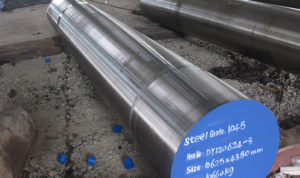Alloy steel and carbon steel are two types of steel that are employed to a wide range of applications. Here are some of the key differences between alloy steel and carbon steel:
Composition: Alloy steel is a type of steel that is made by adding other elements to the iron-carbon mix, such as manganese, nickel, chromium, or vanadium. Carbon steel, on the other hand, is made solely from iron and carbon.

Strength: Alloy steel is generally stronger and more durable than carbon steel, due to the addition of other elements. This turns it into well-suited for applications that require high strength and durability, such as construction and heavy machinery.
Cost: Alloy steel is generally more expensive than carbon steel, due to the cost of the additional elements that are in addition to the mix. Carbon steel is a more affordable option for applications that do not prescribe high strength or durability.
Weldability: Carbon steel is generally easier to weld than alloy steel, due to its lower carbon content. Alloy steel can be more difficult to weld, and may require special techniques or equipment.

Corrosion resistance: Alloy steel is generally more resistant to corrosion than carbon steel, due to the addition of elements such as chromium and nickel. This turns it into well-suited for applications that require resistance to rust and other forms of corrosion.
Overall, the choice between alloy steel and carbon steel will depend on the specific needs and requirements of the application. Alloy steel is generally stronger, more durable, and more corrosion-resistant than carbon steel, but it is also more costly. Carbon steel is a more affordable option for applications that do not prescribe high strength or durability.